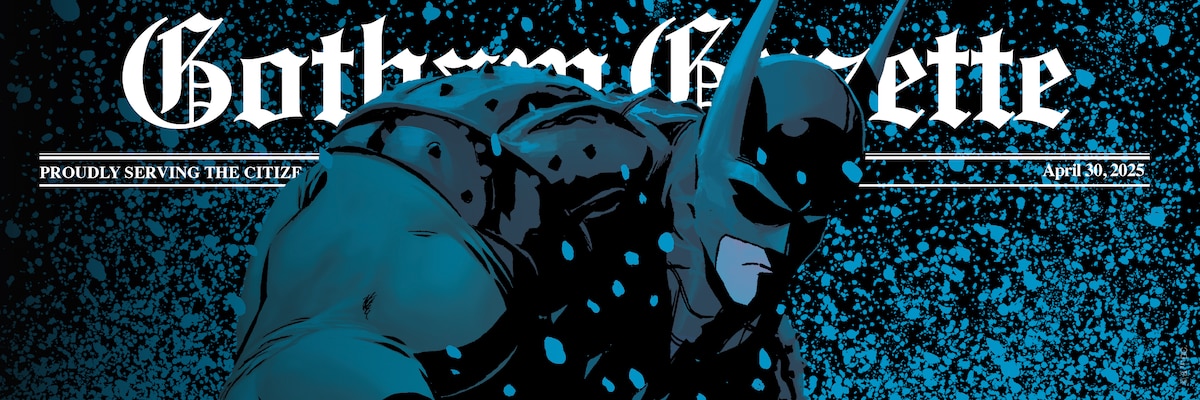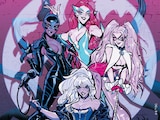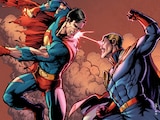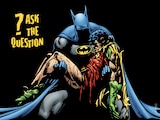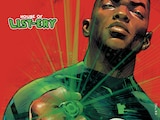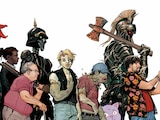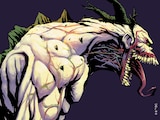Gotham City is a busy place, with a lot going down each and every week. In this monthly column, Joshua Lapin-Bertone helps you stay on top of it all by letting you know what you should be paying attention to within the Bat-Family…and why.
“I hate to tell you, pal, but you’re not even the main character. Right, kiddo? The only hero of this story, Batman, is money.”
This is what Black Mask tells Batman in Absolute Batman #5. The crime boss had offered the Dark Knight $200 million to stand down for a week, allowing his Party Animals to ravage Gotham. Afterwards, Black Mask promised he would go easy on the city.
There was never a chance that Batman would take the deal, but he played along in order to lure Black Mask into a trap. In one of the coolest visuals we’ve seen in the series so far, Batman put the money on a giant signal light (in the shape of a bat, mind you), lighting it on fire. This not only creates an awesome Bat-Signal image but also sends an effective message to Black Mask and Gotham: Your money has no power over me, and neither do you.
Black Mask is undeterred, however, resulting in his (admittedly pretty badass) line above.
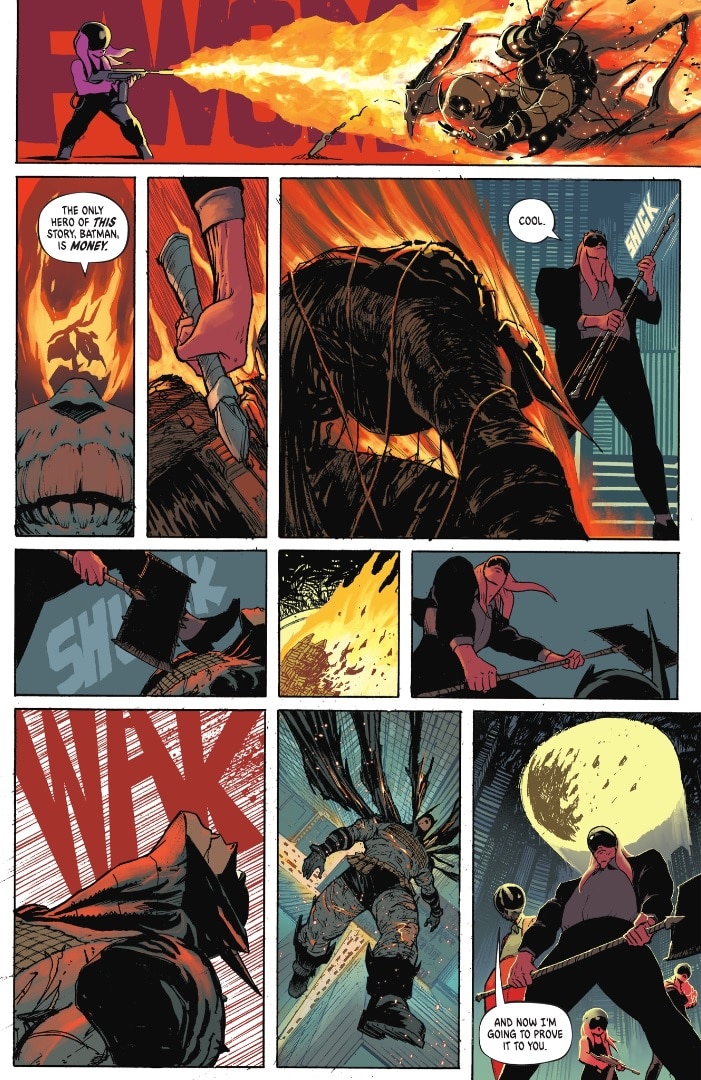
And in some ways, Black Mask isn’t wrong. Money plays a very large role in Absolute Batman, where class is one of the main themes.
If this confrontation were set in DC’s main continuity, Batman burning the cash would mean nothing. After all, he has Bruce Wayne’s checkbook and the resources of Wayne Enterprises. The Dark Knight in Absolute Batman is different. He comes from a working-class background, and that changes everything about who he is, how he relates to his enemies and how he relates to his city.
I previously wrote about how having Bruce Wayne grow up without his generational wealth fundamentally changes the character, and now that we’re one arc into the series, we’ve seen a few examples. This is a Batman who is more in tune with his city. While the DCU’s Batman has satellite caves all over Gotham, the Absolute Universe’s Batman has a secret base every few blocks.
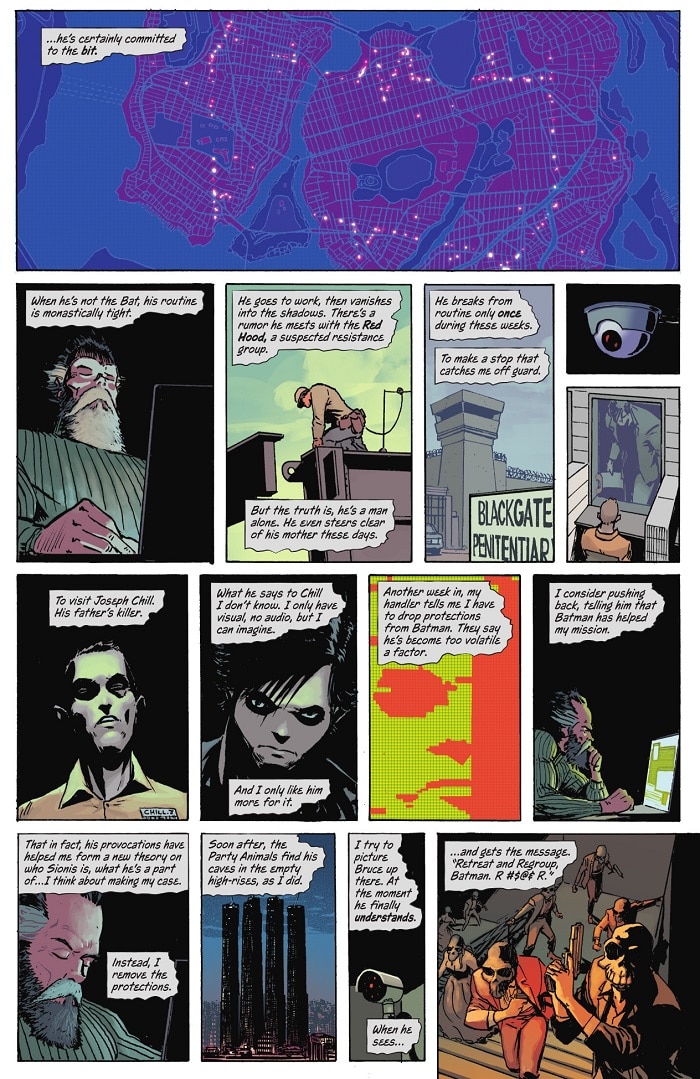
In the absence of high-tech gadgets and expensive equipment, Batman uses the city as his greatest weapon. As Alfred notes in Absolute Batman #2, “He plans everything. Uses everything. A fighter who knows the terrain takes advantage.”
Case in point, as Alfred is saying this, Batman partially floods an aquarium during a battle with Black Mask’s Party Animals. Once the Party Animals are standing in water, the Dark Knight throws a capsule of concentrated vinegar, turning the water into hydrochloric acid. Party’s over, at least for all of the thugs.
We see the differences in Bruce Wayne’s social life as well. A working-class superhero doesn’t hang out with affluent folks like Lucius Fox. Instead, he has a regular poker night with his childhood friends Eddie Nygma, Harvey Dent, Ozzie Cobblepot and Waylon Jones. No, you didn’t misread the names, but to be fair, these are different versions of the typically villainous characters. So far, they haven’t committed the crimes their mainstream counterparts have. Still, it’s interesting to see how the dynamics are different without Bruce’s social status.
A working-class Bruce is a peer to the working-class people. There is no fortune changing the power and social dynamics between them. As a result, this Batman has a different connection with the city and its residents.
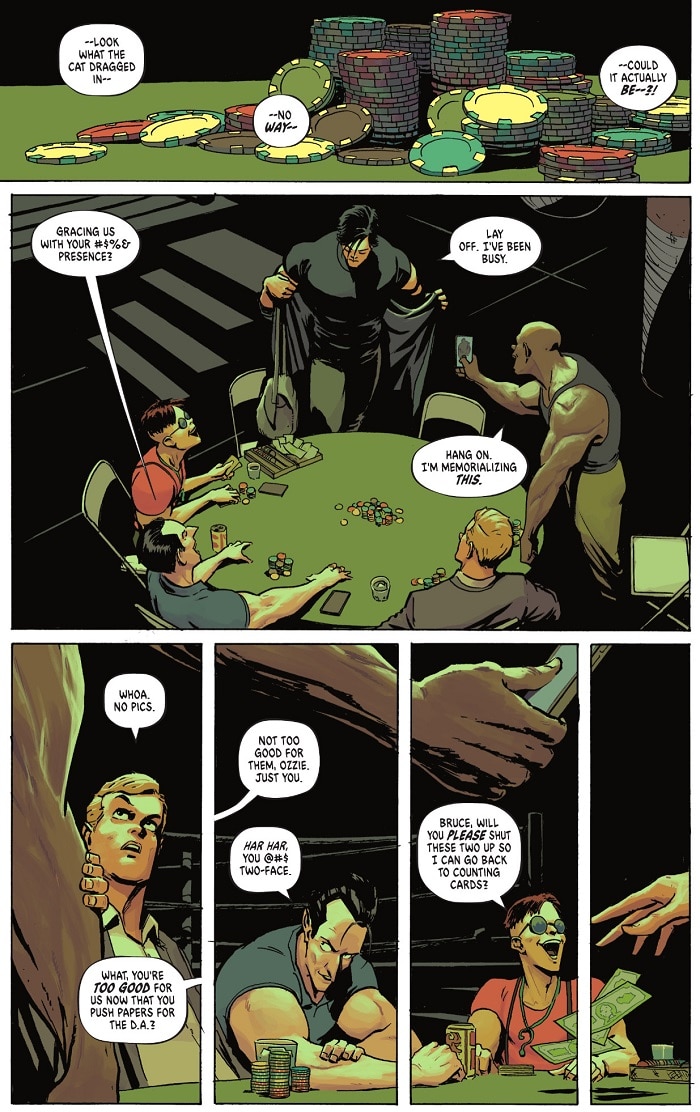
I will also add, it’s interesting to see Batman’s rogues acting as his new Bat-Family. There is no Robin, Nightwing or Batgirl, so Bruce is turning to Eddie, Harvey, Ozzie and Waylon for support. A childhood photograph of Bruce and the others (along with their absent friend Selina) is a recurring image throughout the first arc. This tells us that they’re more than peers—they were an integral part of his upbringing, shaping the man he is today.
In that sense, Absolute Batman can almost be seen as an interesting character study on the relationship Batman has with his rogues. There have been theories over the years about how Batman wouldn’t exist without them, and this title takes things a step further, making them an important part of who he is, with their friendship helping to shape him during his formative years. It’s safe to say this working-class Batman of the Absolute Universe wouldn’t exist without them (if they even become his rogues—there’s no guarantee).
Of course, part of being working class is…well, working. Bruce Wayne has a 9-to-5 job as an engineer, which makes me wonder when he has time to sleep. Fortunately, at 24 years old, this Batman is also quite young. He may be burning the candle at both ends, but he’s at the age where he can pull that off…for now. Still, I’d be surprised if this doesn’t eventually become a problem.
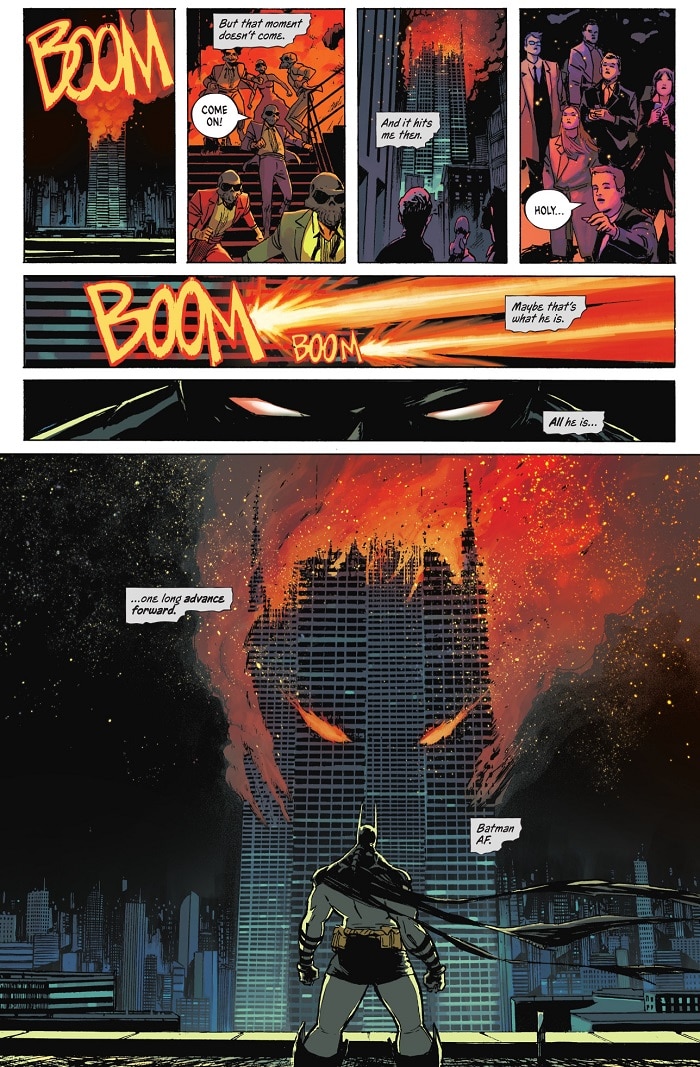
In Absolute Batman #6, Black Mask tests his theory about money being the main character. The crime boss drops weapons and masks around the city, inviting every Gothamite to become a Party Animal. While wearing the masks, images flash on the screen instructing the wearer what crimes to commit and how much money they’ll be rewarded. There are even bounties on citizens like Mayor Jim Gordon.
Unfortunately, Gotham’s citizens don’t share Batman’s morals, and many of them succumb to Black Mask’s offer. Money has that power over them. It’s worth noting that Black Mask said that money is the main character, but he never said it was the hero. In this story, it’s the villain. That’s not to say it can’t be used for good, as the mainstream Batman has done. But here, in Absolute Batman, money is being weaponized.
Still, I think Black Mask only has it halfway right. It’s not money that drives Absolute Batman, but rather the lack of money. Living paycheck to paycheck changes who Bruce Wayne is, how he operates, who his allies are and how he engages with his city. One thing it doesn’t change is the Dark Knight’s core ideals. He might be more violent and primal, but his mission remains the same. Whether he’s a billionaire or very nearly broke, Batman will always be the protector of Gotham.
The first six issues of Absolute Batman by Scott Snyder, Nick Dragotta and Frank Martin can be read on DC UNIVERSE INFINITE.
Joshua Lapin-Bertone writes about TV, movies and comics for DC.com, is a regular contributor to the Couch Club and writes our monthly Batman column, "Gotham Gazette." Follow him on Bluesky at @joshualapinbertone and on X at @TBUJosh.
NOTE: The views and opinions expressed in this feature are solely those of Joshua Lapin-Bertone and do not necessarily reflect those of DC or Warner Bros. Discovery, nor should they be read as confirmation or denial of future DC plans.
